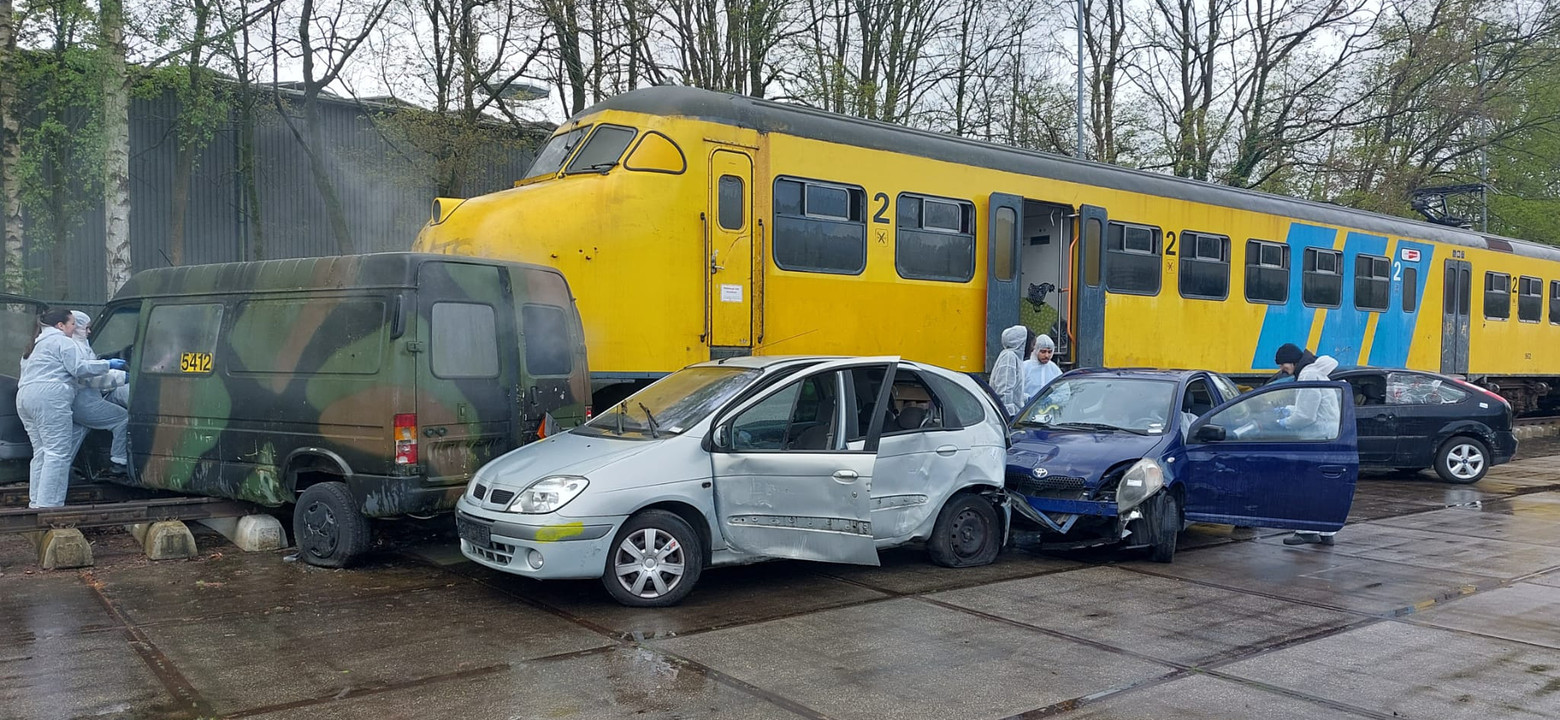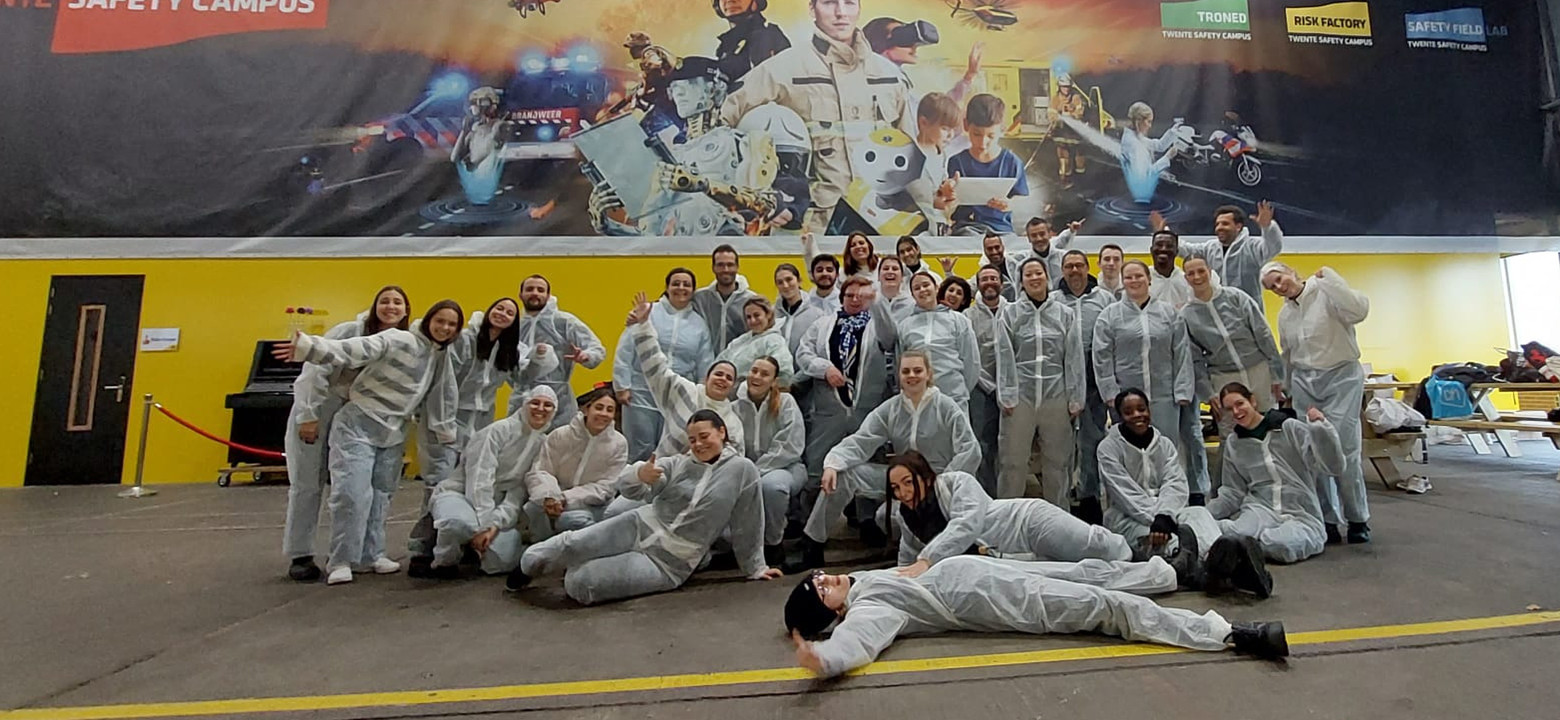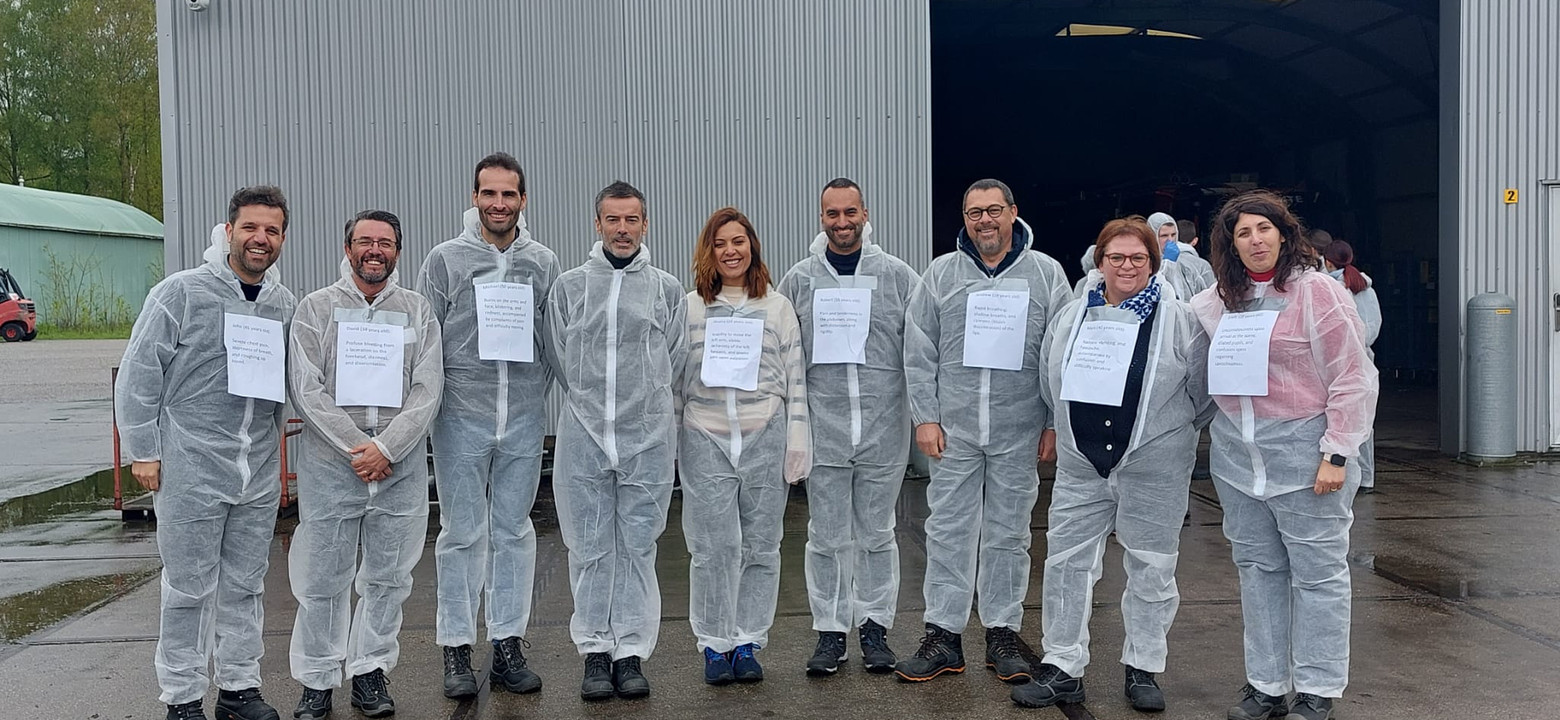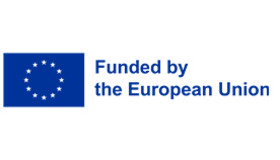Crime scene re-enactment with Portuguese and Belgian students in Erasmus+ Blended Intensive Programme
A Blended Intensive Programme (BIP) offers students the unique opportunity to gain international experience without having to travel abroad for long-term. This is valuable for those not always free to travel, according to Louise Lycklama a Nijeholt, Senior Lecturer in Forensic Science and researcher at the Technologies for Criminal Investigations Research Group. The LED school set up a successful BIP for students of the Forensic Investigation and Nursing programmes at Saxion, CESPU Portugal and the Erasmus Brussels University of Applied Sciences and Arts in Belgium.
The BIP focuses on the intersection of forensics and nursing. Why did you choose this combination?
We have set up our BIP ‘Forensic Urgencies - when CSI meets ER’ with the CESPU University in Portugal and the Erasmus Brussels University of Applied Sciences and Arts in Belgium. The programme offered students the opportunity to analyse a crime scene as a team and in an international setting.
By bringing students from forensic science and nursing together, they were able to learn from each other's perspectives and skills. Crucial, because as a team they had to analyse traumas and explain them based on evidence. This is important in complex situations where both medical and forensic knowledge is required.

Re-enacted crime scene at the Twente Safety Campus
What was the student assignment and how did they work together?
35 students from the three institutions participated in the BIP. The assignment consisted of both an online and a physical component. During the online preparation, students worked on case studies and attended interactive workshops.
Then the Portuguese and Belgian students came to visit us. At the Twente Safety Campus in Enschede, they worked in groups on a re-enacted crime scene. They were given extensive details about the situation they were about to find. Each group analysed part of the crime scene. They assessed trauma, compared witness statements, formulated hypotheses, and developed different scenarios.
By collaborating with fellow students from different cultures and disciplines, students learn to understand each other's cultural and professional approaches. This broadens their perspectives and increases their adaptability. Valuable skills for an international work environment.
What kind of crime scene did you re-enact?
Thanks to the excellent cooperation of the Twente Safety Campus, we were able to simulate a large-scale investigation around a complex train scenario with multiple vehicles and casualties. The victims were played by lecturers from Saxion, CESPU and the Erasmus University of Applied Sciences, which made for a lively and realistic setting.
In the scenario, we also simulated a situation where a victim needed medical care at the crime scene. Students had to take account of a trauma analysis and witness statements. They were challenged to develop hypotheses and scenarios that matched the available evidence.
Watch the video of the re-enacted crime scene here:
What was the biggest learning moment for students?
Nursing students in particular learned the importance of forensic evidence and how their actions could affect its placement and interpretation. At the same time, through their contact with the victims, they were able to gather crucial information that turned out to be essential for the forensic investigators. These researchers, in turn, discovered how important it is to work effectively with healthcare professionals who do not have specific knowledge of evidence retention. This led them to ask deeper questions and adapt their research techniques to obtain the necessary information.
In addition, forensic investigators had to be flexible in their standard working methods, sometimes they had to wait or adjust priorities due to victims first requiring medical care. This was a valuable learning opportunity for them in weighing priorities and working together in a multidisciplinary team.

The group of students and lecturers from Saxion, CESPU and Erasmus Brussels University of Applied Sciences and Arts
Students did not only learn from each other in terms of subject matter, but they also learned about each other's cultural approaches and professional working methods.
Students did not only learn from each other in terms of subject matter, but they also learned about each other's cultural approaches and professional working methods. It was both great fun and inspiring. The BIP brought together students from different countries and provided a rich exchange of knowledge, cultures and professional approaches in the forensic field. The programme provided a unique opportunity for an international experience, also for those unable to travel abroad.
How do you look back on this BIP?
I look back on this programme with pride and satisfaction. It was inspiring to see how students from different backgrounds and disciplines worked together on complex scenarios. One special aspect was how the groups continuously contradicted each other and tried to convince the other of their own conceived scenarios. They pulled out all the stops, contested each other's prior knowledge and were genuinely curious about the other conclusions drawn. It was great to see the heated discussions, where there was also room for laughter and fun. It really felt like we formed a BIP community, one in which we lived together for the entire week.
This experience showed that, regardless of the differences, working towards a common goal with shared interests makes for the best moments. This programme not only brought professionalisation and learning new perspectives, but also provided the opportunity to enjoy the learning process itself. The BIP illustrated how a shared focus and passion can transcend borders, and I am proud that we were able to share this special experience with one another.
The combination of the committed people in our team and school, along with the partners, made this project a successful BIP. It was a real team effort that formed the basis of this successful programme.

| Project Code: | 2022-1-NL01-KA131-HED-000053497-1 |
| Action Type: | KA131-HED – Mobility of Higher Education students and staff supported by external policy funds
|
| Agency: NL01 - Nationaal Agentschap Erasmus+ Onderwijs Training | |
